North Carolina Governor Roy Cooper extended the statewide stay at home order, but shared a plan on Thursday to gradually ease the state back into business as COVID-19 cases lessen.
Cooper held a press conference with health officials where he announced how North Carolina will begin its “new normal” once increased testing, tracing and tracking of trends is done. But he said more time is needed to slow the spread of the coronavirus before those restrictions are lifted, extending the stay at home order through May 8.
“I will not risk the health of our people or the health of our hospitals,” Cooper said. “Easing these restrictions now would do that. I know people want their lives and livelihoods back and I have a plan to do that. But first, we need to hit certain metrics because the health and safety of North Carolinians is our number-one priority.”
Secretary of the Department of Health and Human Service Dr. Mandy Cohen said the state must see a decline in trajectory of new cases before moving into phases to gradually open the state’s businesses. She said the state must see a continued decrease of COVID-like syndromic cases, decreasing or sustained leveling numbers of cases, decreasing percentage of positive tests and decreasing or sustained leveling amounts of hospitalizations.
But Cohen said as of Thursday, the state is still seeing a slight increase in cases and is currently falling short of those benchmarks the state has set to signify North Carolina’s readiness for the three-stage plan.
Cooper described the first two phases as having two to three weeks between them with the state still hitting its benchmarks. Phase 1 would allow more people to leave their homes for more commercial activity, whereas Phase 2 would reopen certain businesses that do not require close contact.
Both phases would still maintain strict social distancing requirements.
The final phase would be lifting such social distancing requirements and allow mass gatherings to happen again, meaning sporting events, concerts and businesses like barbershops and salons would be allowed to open again. This phase would need to be after four to six weeks of hitting positive benchmarks regarding COVID-19 under Phase 2.
Cooper said nursing homes and congregate long-term care facilities will not follow these phases like the rest of the state’s population, instead still following the requirements laid out by state health officials.
The governor said at any time if the state moves away from its benchmarks and cases continue to rise, the state may move back into a previous phase.
“I know the people in our state are eager to move forward,” he said. “But right now, I appreciate everyone who is taking this seriously and staying home to protect themselves and others.”
Cohen said the state has seen steep rises in positive cases the last two days because the tests are being issued at a higher rate than before, leading to more positive results. She said her department will continue to study the trends of percent positive cases, as well as trajectory of hospitalizations, to inform the state government when to move to the phases.
Cohen also said amounts of personal protective equipment, or PPE, will factor into the decision-making of when to move to phases. She said, however, many of the state’s health care facilities lacked the ideal 30-day reserves of gowns and N95 masks, two of the most in-demand pieces of PPE.
Cooper said an announcement about the plan for the state’s public schools and how to complete instruction for the 2019-2020 academic year will be delivered on Friday.
A full list of what the phases entail, and the NCDHHS benchmarks to begin the phases, can be found on the governor’s website.
Chapelboro.com does not charge subscription fees. You can support local journalism and our mission to serve the community. Contribute today – every single dollar matters.
Related Stories
‹
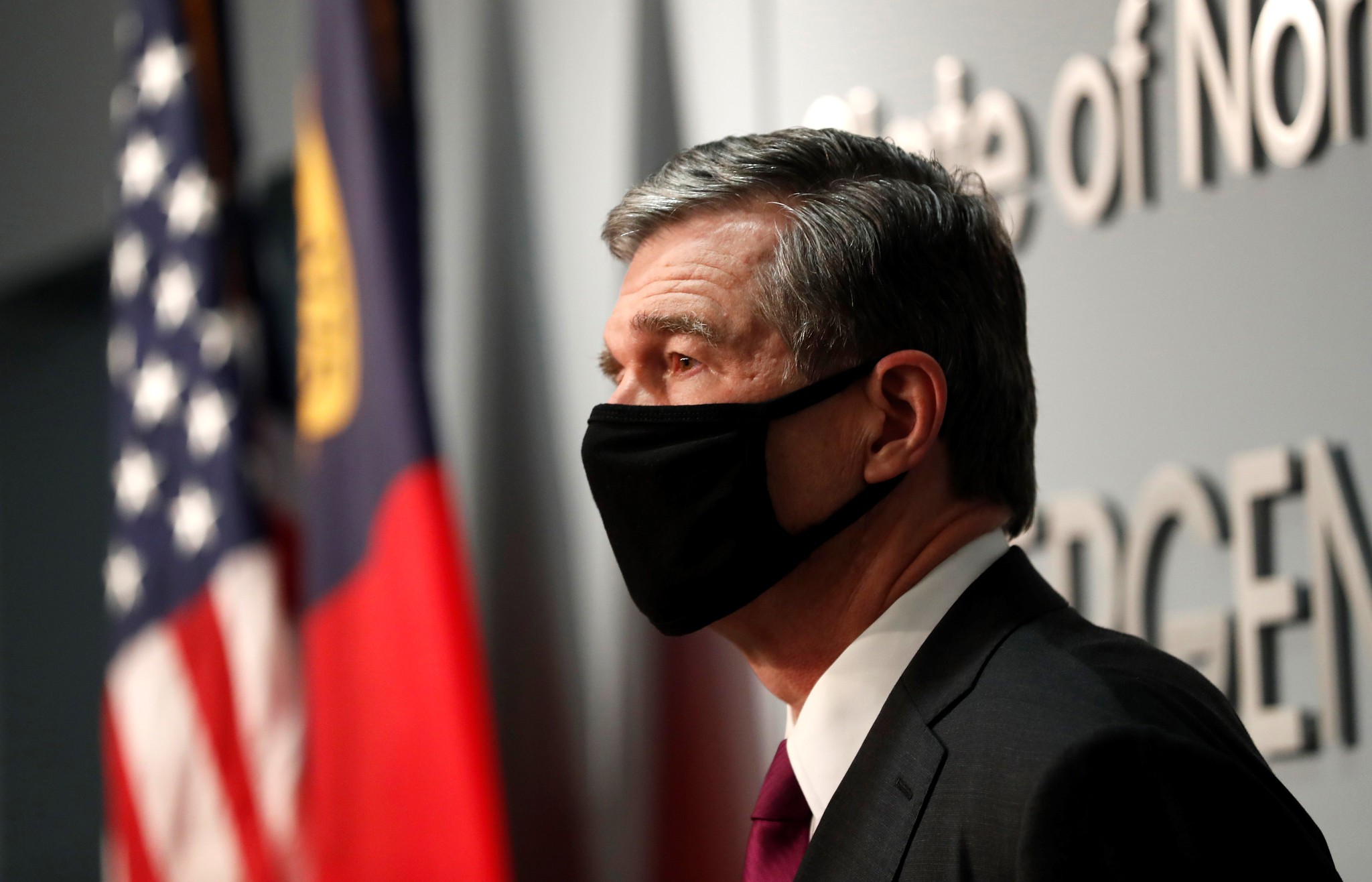
Here's What You Need to Know About NC's New Stay-at-Home OrderEarlier this week, North Carolina Governor Roy Cooper announced a nightly curfew will be put in place for the state amid rises in new COVID-19 cases and other increasing statewide trends. Cooper and Dr. Mandy Cohen, the secretary for the North Carolina Department of Health and Human Services, said the record-breaking single-day numbers for new […]
![]()
Lawsuit Filed to Block NC Governor's Order on ChurchesConservative Christian leaders sued North Carolina Gov. Roy Cooper on Thursday to get thrown out his latest restrictions on indoor religious services during the COVID-19 pandemic. They argue the limits, initiated by Cooper with health in mind, violate their rights to worship freely. Two Baptist churches, a minister and a Christian revival group filed the […]
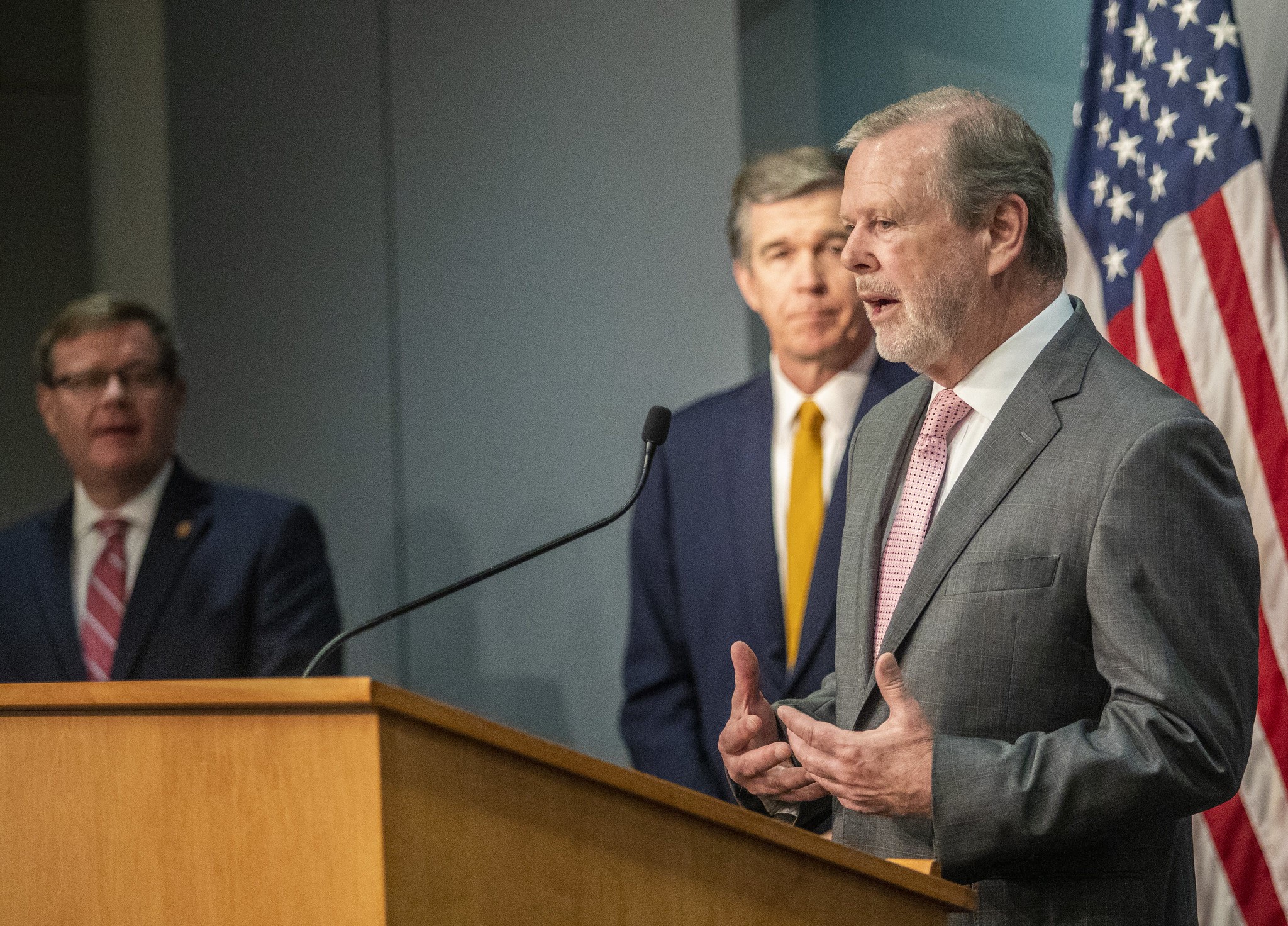
Sen. Berger Asks Gov. Cooper to Let Counties Reopen BarbershopsOne of North Carolina’s most powerful Republican elected officials has called on Democratic Gov. Roy Cooper to give county governments the ability to reopen barbershops and hair salons now. Senate leader Phil Berger said on Wednesday that most Southeastern states have allowed these personal service businesses to reopen in some capacity. They are mostly run […]
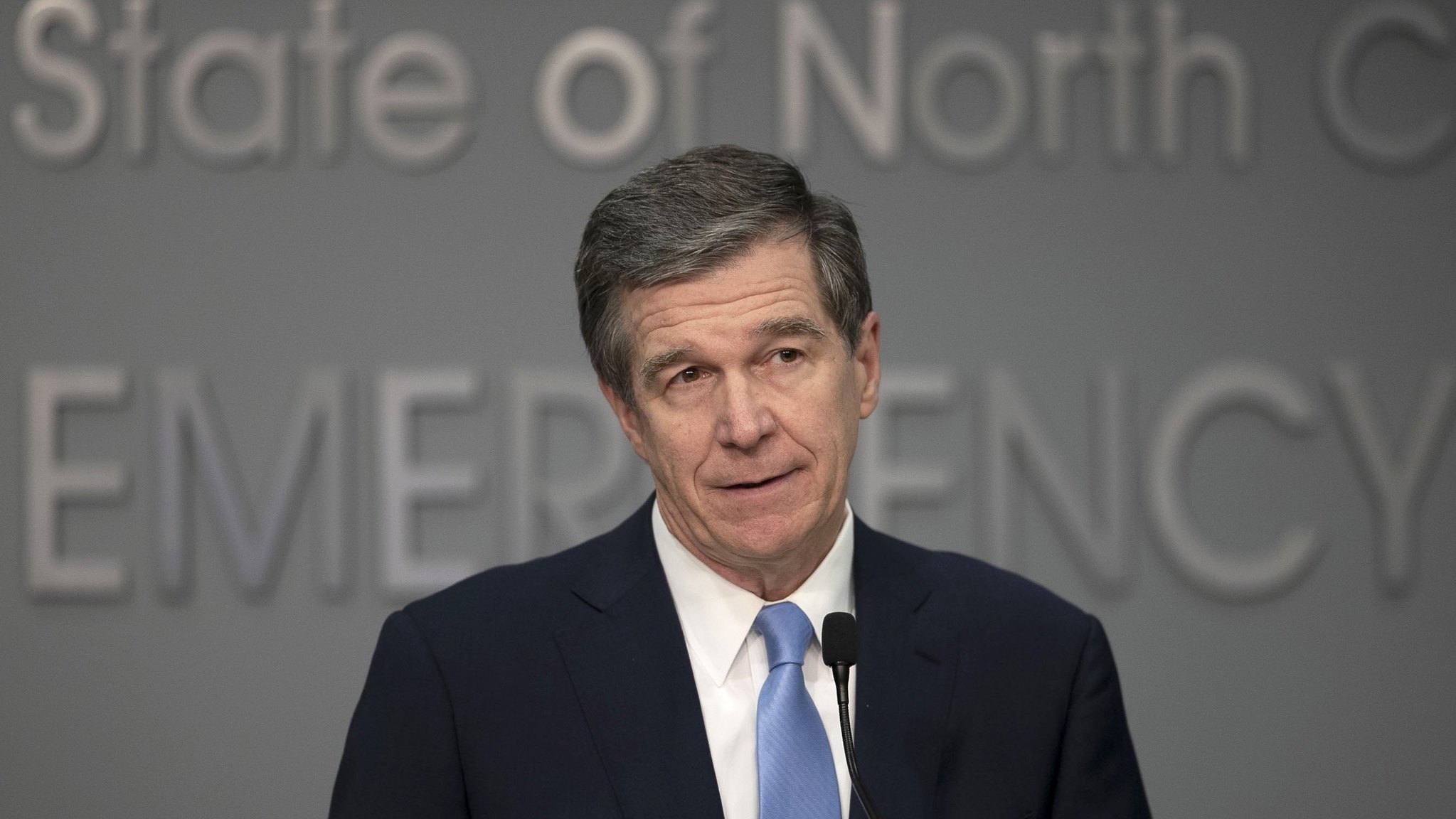
Governor Cooper Defends Rules for Businesses, ChurchesStating “pandemics cannot be partisan,” North Carolina Democratic Gov. Roy Cooper on Tuesday defended his eased stay-at-home order as criticism mounted from elected Republican officials and demonstrators who gather weekly outside his home. Cooper’s altered COVID-19 order, which took effect Friday, allowed more businesses to open to customers as long as social distancing rules are […]

University Place Shares Plans for Limited Reopening with NC's Phase 1University Place will be among the businesses to reopen as the rest of North Carolina begins its Phase 1 this weekend. The shopping center will be opening in a limited capacity starting Saturday, May 9, at 10:30 a.m., with some businesses still remaining closed due to Governor Roy Cooper’s executive order. Some businesses with interior […]
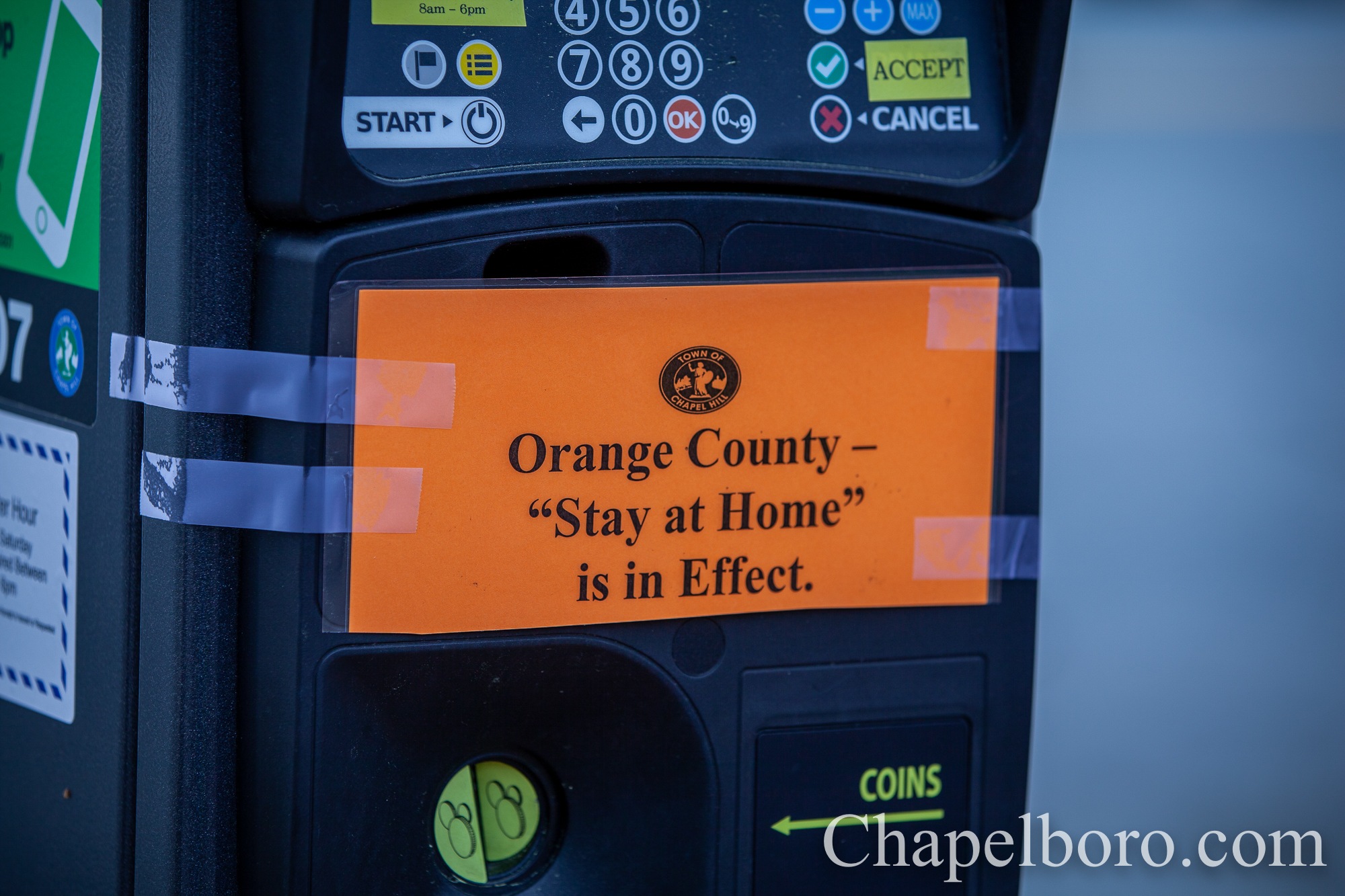
Orange County to Follow NC's Phase 1 Guidelines, Ending County Stay-Home OrderOrange County will end its stay at home order on Friday, May 8, to allow residents to fully comply with state guidance as it enters Phase 1 of gradual reopening. The county shared a release on Wednesday acknowledging it will let the county order expire, but reminding residents they still fall under the statewide stay […]
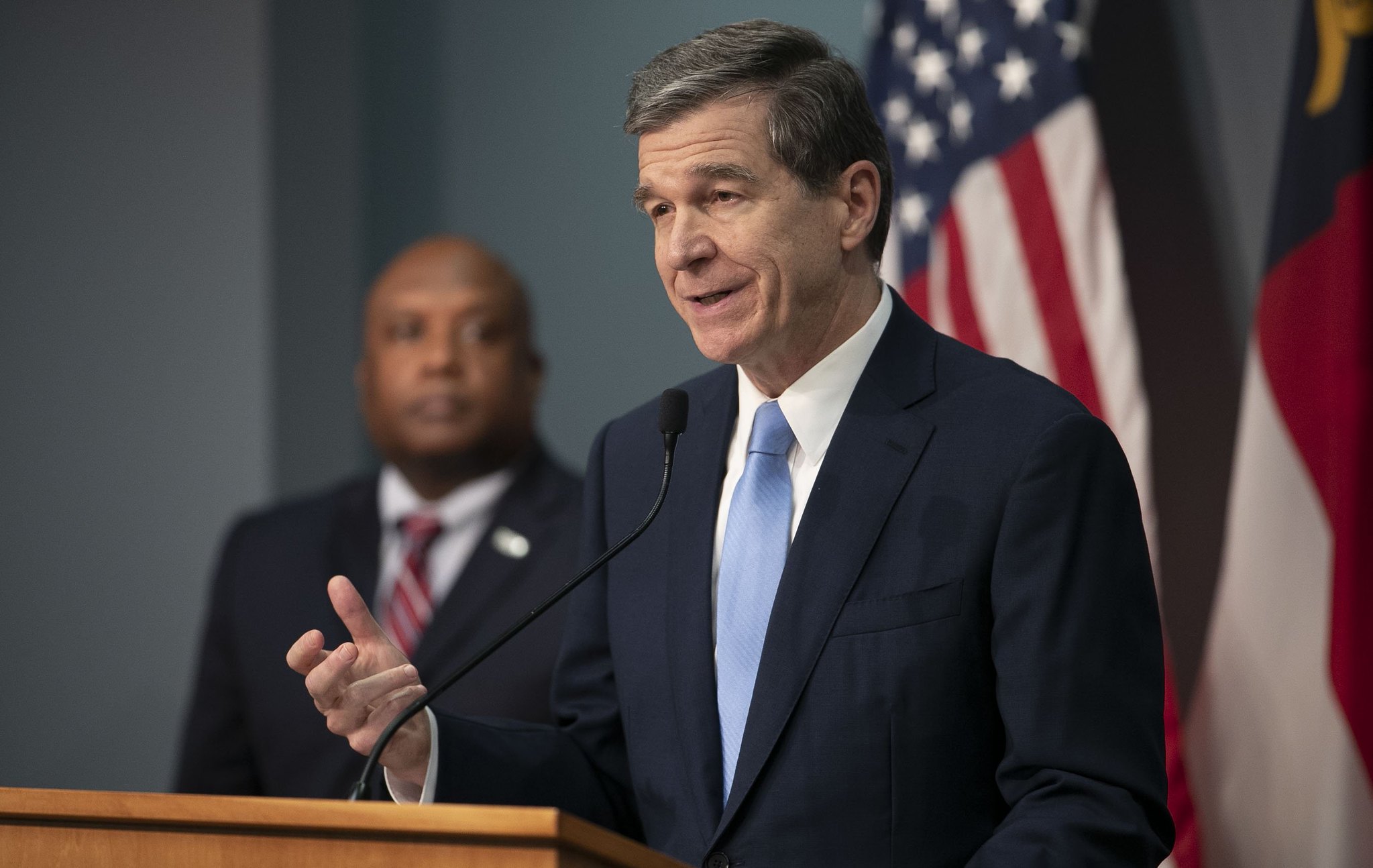
Gov. Cooper: North Carolina to Move to Phase 1 Beginning FridayNorth Carolina Governor Roy Cooper said he will sign an executive order for the state to enter Phase 1 of lifting the restrictions issued during the COVID-19 pandemic. Cooper said North Carolinians’ efforts to stay home, use face coverings and physically distance themselves when in public have affected the virus’ spread enough to move into […]

Orange County Extends Stay at Home Order to Coincide with North Carolina'sOrange County extended its county-wide stay at home order past its initial April 30 expiration date. County officials, in cooperation with the mayors of Chapel Hill, Carrboro and Hillsborough, decided to extend the order until May 8, according to a release from Orange County. The new length of the order coincides with the extension of […]

Hundreds Demand North Carolina Governor End Stay at Home OrderHundreds of people angry and frustrated with North Carolina Gov. Roy Cooper’s stay-at-home order designed to blunt COVID-19 marched on Tuesday around his home, demanding that he cancel it now to unleash the state’s economy. Carrying placards and banners and chanting, the crowd gathered in a parking lot before being escorted by Raleigh police motorcycles to walk […]

Cooper Signs Order to Help Furloughed Workers, Says Decision on Stay at Home Extension Coming SoonNorth Carolina Governor Roy Cooper signed a new executive order on Tuesday aimed to help workers furloughed by employers amid the COVID-19 pandemic. He also spoke about the budget proposal his administration plans to make at the General Assembly’s meeting next week and when a decision will be shared regarding the state’s stay at home […]
›









